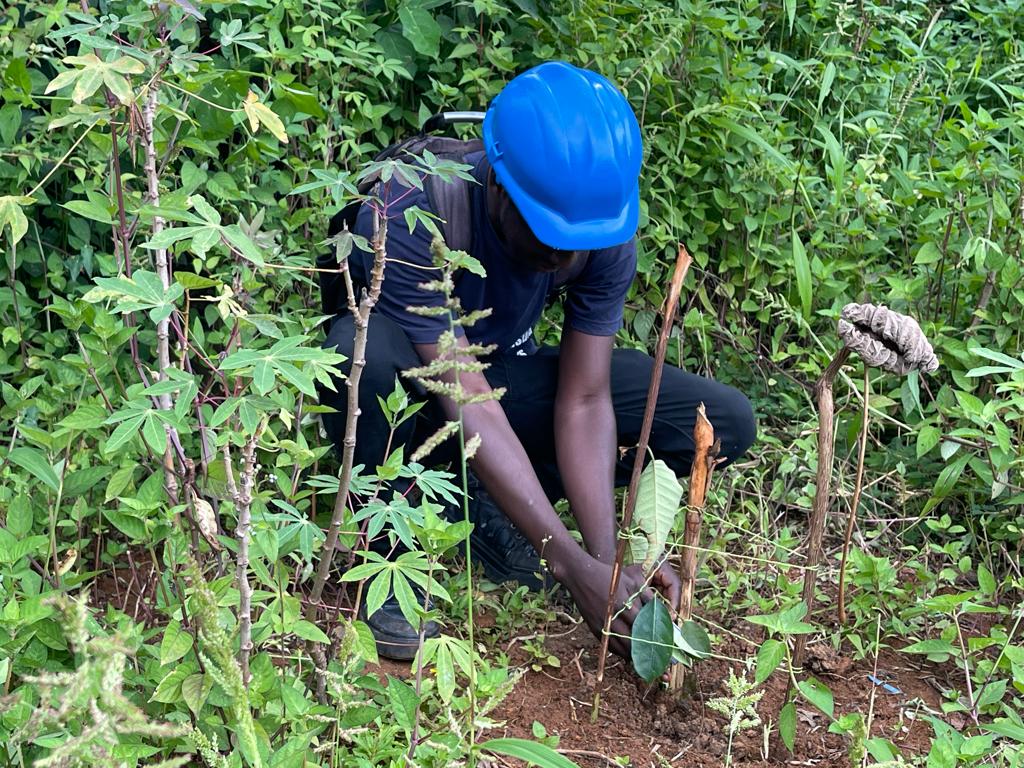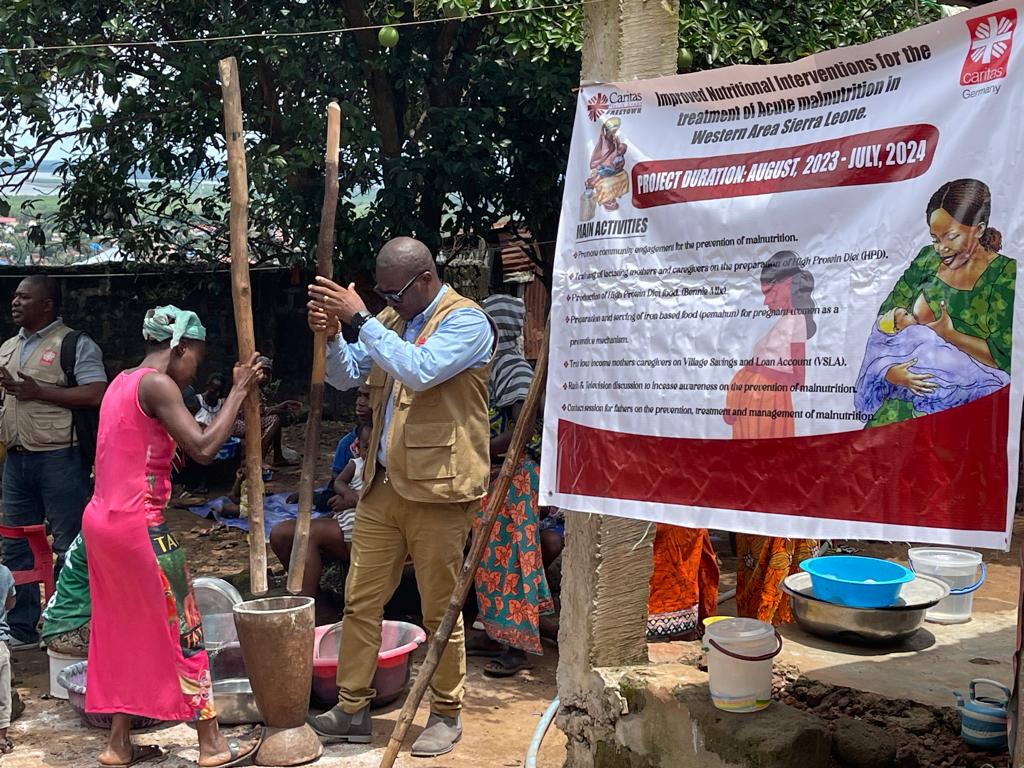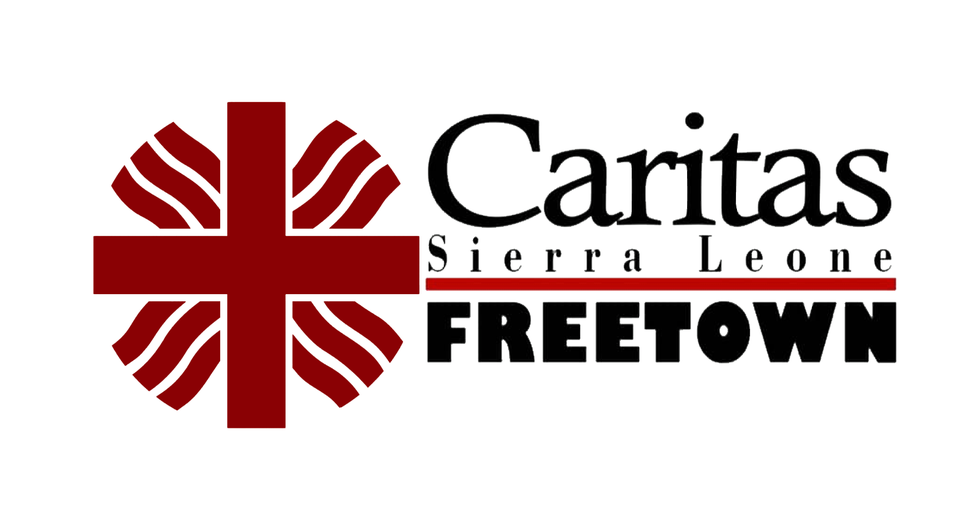Caritas Germany and Caritas Freetown Transform Lives in Sierra Leone with Humanitarian Initiatives

“Caritas has done a great work for us. In the past, we use to ease ourselves in plastics and throw it away, but now we have toilets.” – Hawa Sesay, […]
Caritas Nutrition Project Combating Malnutrition in Young Children

In a remarkable humanitarian effort, the Caritas Freetown Nutrition Project, generously sponsored by Caritas Germany, has been making significant strides in the battle against malnutrition. This initiative is targeting fifteen […]
